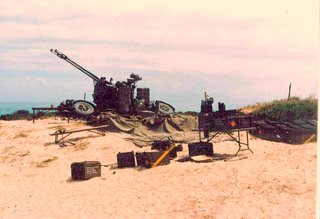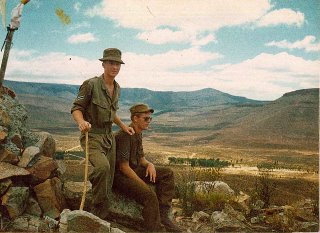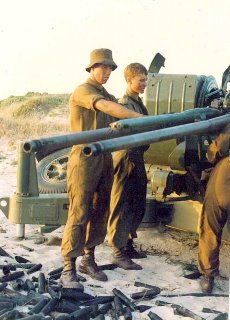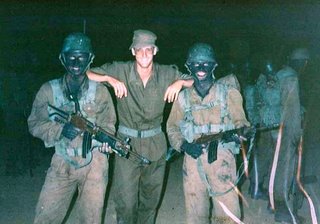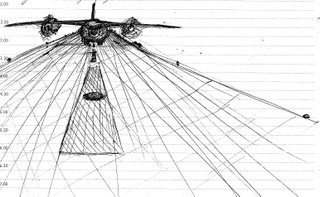
I dreamt about the army again on Friday night. Though it has been twenty years since I went in I, still have dreams about that time. They are not usually truamatic or stressfull. In earlier years there were dreams of being chased by men with guns. But more recently the dream is set in the present day, I am in the army again, and I cant seem to get the message across to those in control that I have already spent my two years and that it is some mistake that I am in the army again, but in the dream I am caught up in the daily things of a conscript and have resigned myself to just waiting out the term....
I have these dreams without having experienced any major trauma or having comitted (personally) any violent acts, but what about those with blood on their hands, or those that saw thier friends die? What kind of dreams are they having at night?
I think it is important to say at this point that though I am apologising for my time in the army in 1986 and 1987, that I dont have any gory details to share, I never shot anyone, beat anyone, I never saw anyone get shot or anyone getting beaten. I was, though, part of a machine that did kill mame, bomb, poison and throw bodies out of aeroplanes! I was just fortunate not to be at the killing end of that machine. I wrote this piece below in 1993 some time after I came out, clearly some stuff still bugging me.
I killed no man
.....so why then these tears ?
Why do I regret that time ?
...why is it stained on my mind....ingrained ?
when I was not shot nor stabbed,
never starved nor overcome by cold,
nor felt bright Napalm burn my skin,
hot shrapnel rip through my throat;
or my blood brother's head burst beside me;
hair, bone, brain spill and splat on my face,
my rifle, my boots....
...And me crying, sobbing,
cowering, clasping, crawling
in that dust ?
I did come pretty close to the war at the end of 1987, when I spent three months on the Agolan border at a base near a Namibian town called Rundu. We were flown up to Rundu from Cape Town in a troup carrier. It was the first time I had flown in a plane. We boarded a c130 at Wingfield on a cold and rainy August day. We flew at altitiude. The c130 is not presurised, so it is noisy inside and very cold, you sit in straps that form a hammock of sorts that hangs from the wall of the plane, icicles form against the metal inside the plane. Eveyone is sitting huddled together, kit on the floor, some afraid, some confused, some throwing up into paper bags.
What is important to explain here is that none of us really new where we were going on that day. We had been told some weeks before to pack our kit and be ready to leave at short notice, and that we would be going into the "operational area" for an unspecified time. (I realise now that the secrecy had to do with intelligence protocols, but no one at the time explains) Then after weeks of rumours and expecting to leave at any momement, the trucks arrive and we are all tumbled off to the airfield.. even the mode of transport is kept secret... we could have gone by train or truck, they never told us that we would fly. The secrecy ofcourse breads a network of rumours, everybody has a brother or an uncle that has told them where we are going, how long we would be there for and what our mission would be.... these rumours are rife and conflicting, you choose to believe what you will, but normally you have a reasonable idea of what is going on.
Eventually we land, very bumby. We come to a standstill, it is dark inside the plane, we clutch our rifles in our hands, a whisper goes around the plane that we have landed in Rundu, (others say we are in Grootfontein) but we dont know if this is good or bad. We have heard the names of these bases in stories told to us... Rundu, Oshakati, Grootfontein, Kutimo Molilo. The rear rampdoor opens and a white searing heat enters the plane. As we scurry out of the plane, we dont know if we are about to be shot at or attacked we look around nervously, checking to see if we should take cover, run or shoot! Everything is scorched intensly white, incredible bright light out of the darkness of the plane, slowly we see that we are on a runway, in a large military base, fuel storage, bunkers tents, offices and streets. it all seems reasonably safe......
